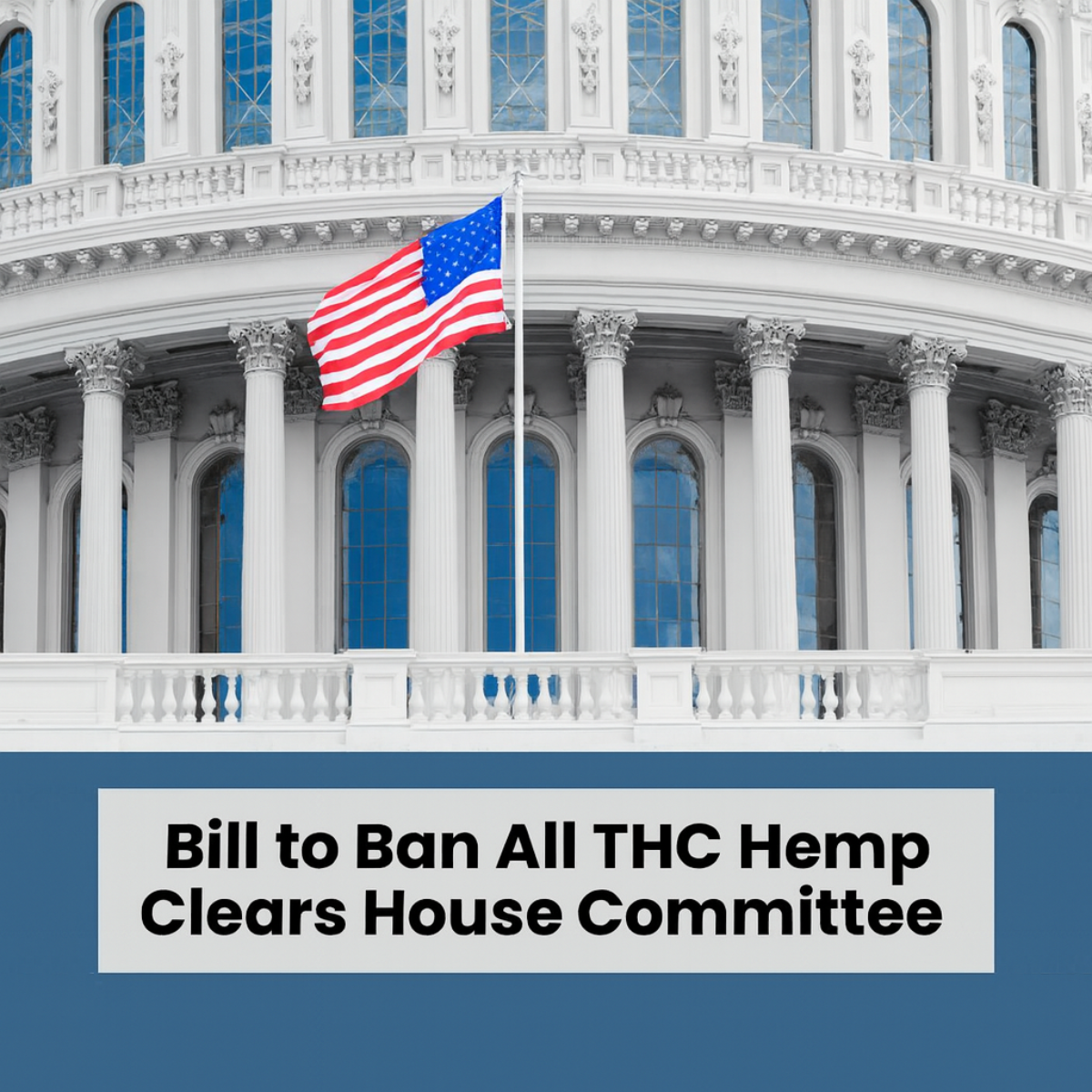
A sweeping amendment in the FY 2026 Agriculture-FDA spending bill is setting major alarm bells ringing across the hemp and cannabinoid sector. The Senate Appropriations Committee unanimously approved a provision that would ban all consumable hemp products containing any measurable THC, thereby closing the so-called “hemp-intoxicant loophole” under the 2018 Farm Bill (Smart Approaches to Marijuana).
🔍 What the Provision Does
-
Redefines “hemp” to exclude any product with quantifiable THC or THCA, not just those with more than 0.3% delta‑9 THC in plant biomass (Cannabis Business Times).
-
Bans a broad array of hemp-derived intoxicants—like delta‑8, delta‑10, THCA, THC‑O—by eliminating the federal loophole that has allowed their sale (The Marijuana Herald).
-
Includes a one-year delay before enforcement begins, allowing existing operations to sell current inventory before full prohibition takes effect (Forbes).
🗓 Timeline: The “Death” of Hemp‑THC by 2027
-
Provision is included in FY 2026 bill—expected markups and votes take place mid‑2025.
-
If passed by both chambers and signed, policy transitions begin in 2026.
-
By 2027, all consumable hemp products with measurable THC must be removed from shelves.
This timeline effectively ends the federal legal marketplace for hemp-derived THC beverages, edibles, and extracts by early 2027.
🧭 What This Means for Stakeholders
🌿 Farmers & Producers:
With intoxicating hemp outlawed, producers of delta‑8 THC, THCA flower, drinks, tinctures, and vapes will have zero legal footing—even if THC levels are below the 0.3% delta-9 threshold (kbia.org, Forbes, NECANN, The Guardian, MJBizDaily).
🍶 Retailers:
Gas stations, convenience stores, vape shops, and online platforms will be barred from selling most hemp-derived THC products—signaling an era of scarcity for once widely available consumables.
⚖️ Regulators & Public Health Advocates:
Supporters, like Smart Approaches to Marijuana and SAM Action, praise the bill as a necessary step to “protect children” from intoxicating cannabinoids (Forbes, Smart Approaches to Marijuana). They argue federal clarity will make enforcement easier.
🚧 Industry Voices:
The U.S. Hemp Roundtable and other advocates warn this is a de facto blanket ban on 90% of hemp-derived consumables, rather than a nuanced regulatory reform (Forbes). They advocate for better oversight instead of prohibition.
🤜 Senate vs House: A Unified Front
-
The House Appropriations Committee previously passed a near-identical amendment, led by Rep. Andy Harris—voting 35–27 to redefine hemp and ban intoxicating products (Cannabis Business Times).
-
Senate Committee support signals bipartisan momentum, led by figures including Senators McConnell, Collins, Murray, Hoeven, and Shaheen (Smart Approaches to Marijuana).
⚠️ Why Stakeholders Are Concerned
The current strategy would:
-
Shift regulatory control without new FDA guidelines or consumer protections.
-
Threaten the livelihoods of farmers, manufacturers, and retailers who’ve invested heavily in hemp derivatives.
-
Collapse a rapidly growing multi-billion-dollar industry overnight.
-
Potentially drive sales underground, creating an unregulated black market.
🔬 Alternatives Proposed by the Industry
Rather than an outright ban, industry advocates suggest:
-
Implementing potency limits, age verification, and labeling standards.
-
Clamping down on synthetic cannabinoids and child-appealing marketing—not all THC hemp products (Cannabis Business Times, NECANN, MJBizDaily, politico.com, The Marijuana Herald).
-
Using "total THC" calculations based on plant biomass rather than finished product weight to avoid overbroad restrictions (MJBizDaily).
🧭 What Happens Next
-
The Senate Appropriations Committee may vote later this month (The Marijuana Herald).
-
If passed, the full Senate must approve, and reconciliation with House language may follow. Final decision arrives during end-of-year funding measures.
-
Meanwhile, Farm Bill discussions will further shape hemp policy for 2027 and beyond.
✅ Bottom Line
By establishing a firm ban on intoxicating hemp, the Senate ag bill doesn’t just close a loophole—it obliterates the market. If enacted, the provision forces the hemp-derived THC industry to pivot entirely or shut down by 2027. While applauded by public safety groups, the measure raises serious concerns around regulatory balance, industry survival, and consumer access.
